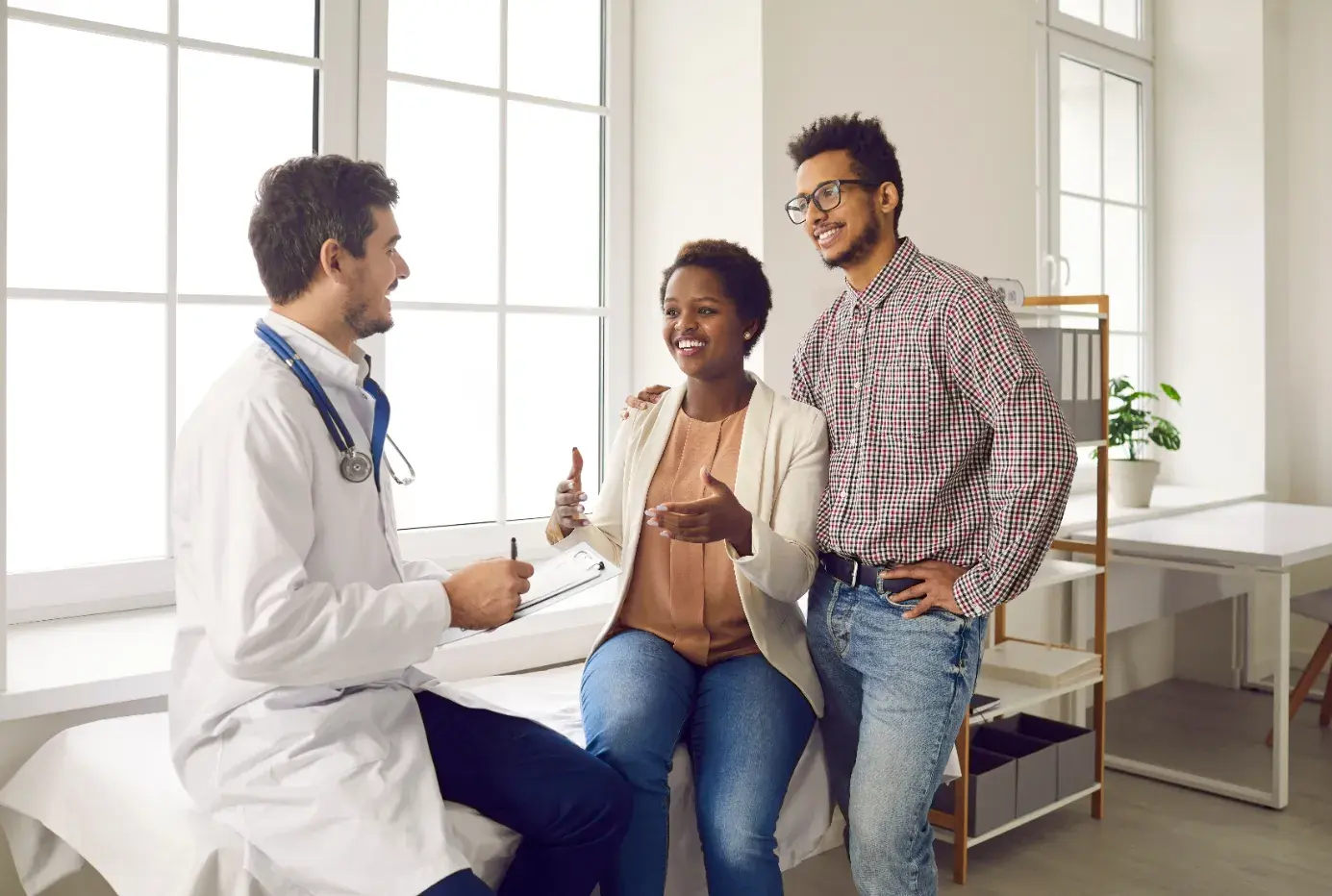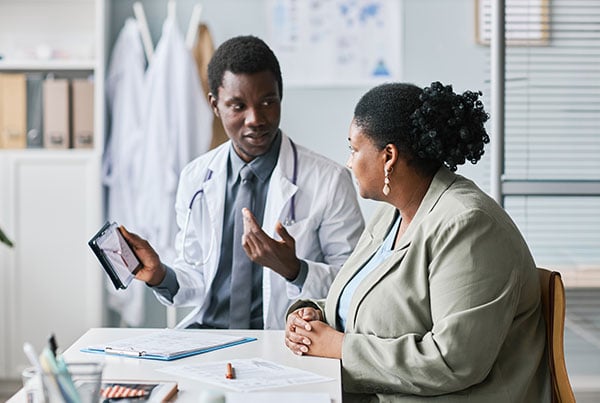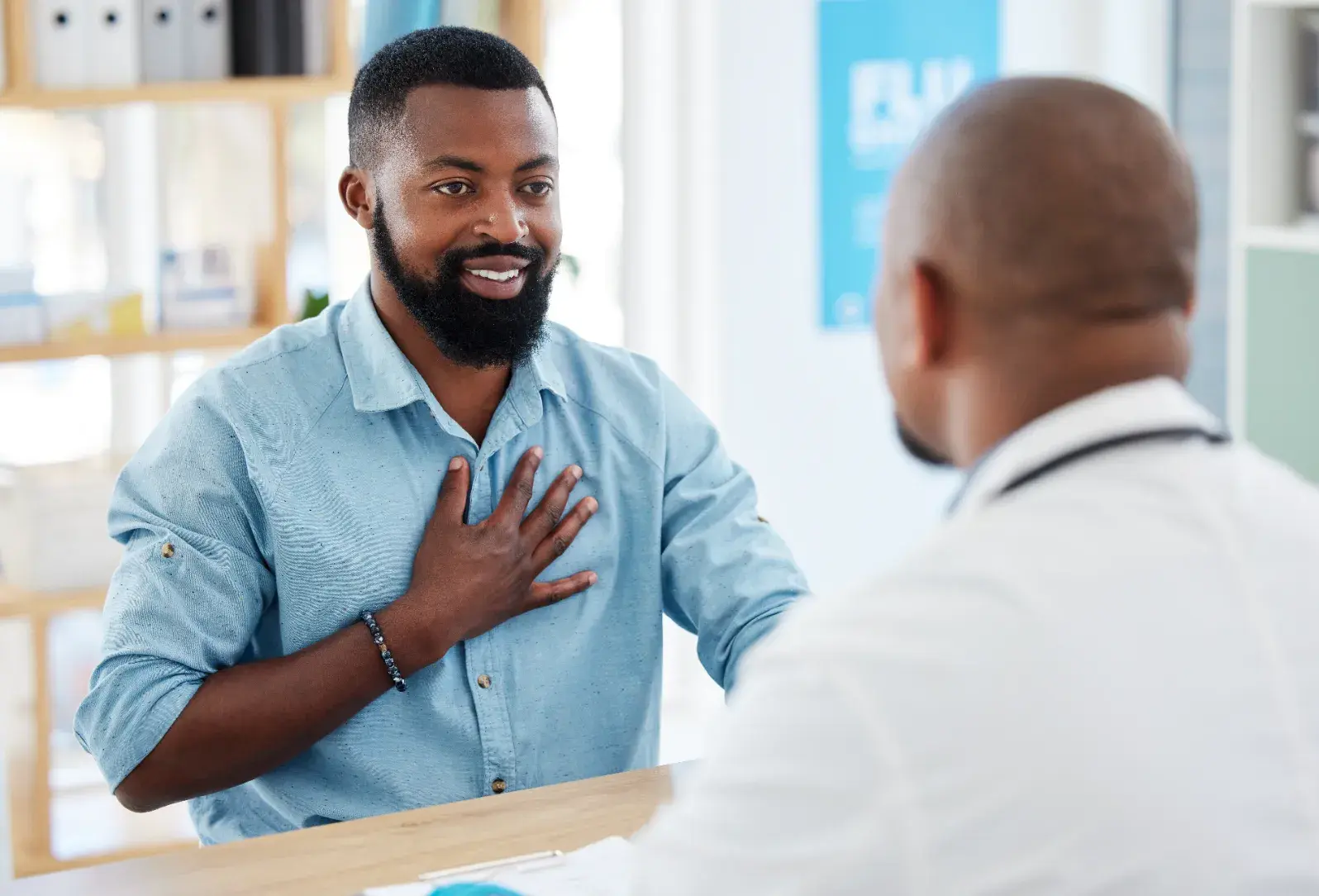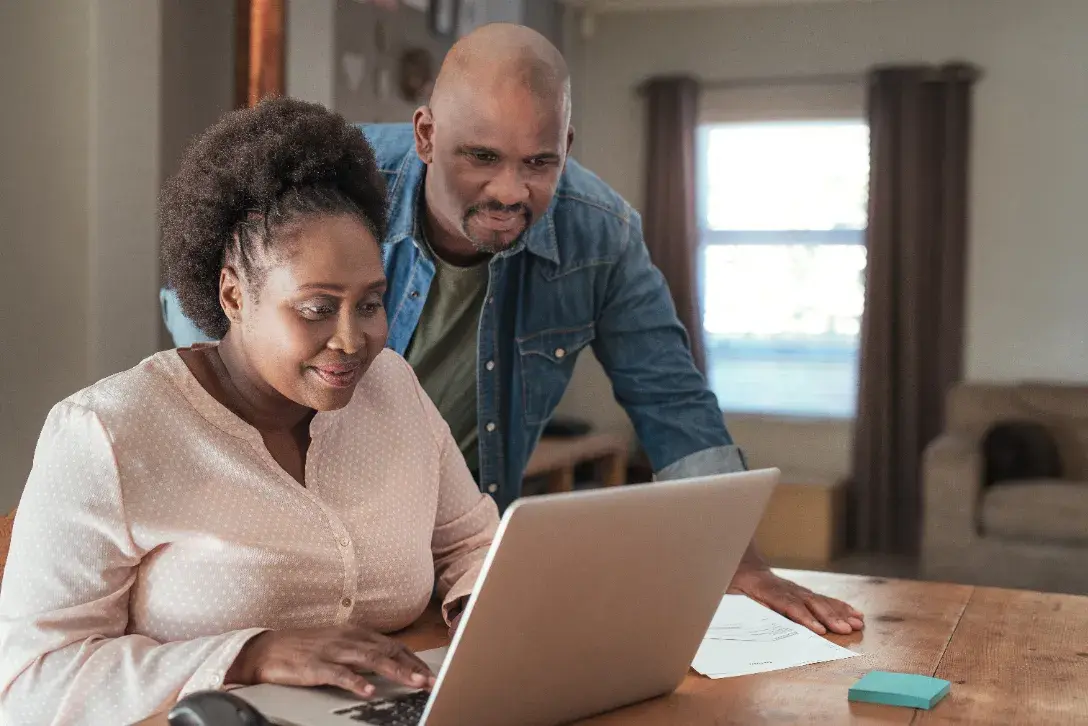Key Takeaways and Learnings
- Engaging communities through trusted relationships fosters meaningful participation in research.
- AI and predictive analytics are transforming how insights are gathered and applied to support health equity.
- Collaboration with technology innovators—like Quilt AI—enhances real-time understanding and decision-making.
- Explore eight best practices for enhancing diversity and inclusion in clinical research.
Acclinate was a featured partner of Quilt AI and presented on revolutionary new AI healthcare technology.
You can watch the video or read the transcript below:
Anurag:
Our next guest is somebody who has been with us last year, his name is Del Smith. You heard his phenomenal co founder Tiffany Whitlow talk earlier about building the now included community. There is a health equity problem in this country, it is widely, widely known, and if anybody can make a dent in the arc of the universe of bad health equity outcomes.
It is Del and Tiffany, and I'm delighted to welcome Del back to spend some time with us.
Del:
Good to see you again. He said been the arc of the universe. That's kind of a big intro right there, Anurag, but glad to be here! I had the opportunity to be here last year to open up this fantastic session, and I'm just happy to be invited back.
I cannot be more excited about what we're going to unveil to you very shortly. But I do want to take a little bit of time to give you a little bit of background about accolade more so than what you may have heard from my co founder when she was here talking so we can go to the next slide here. So advancing health equity through inclusive research and achieving health equity is our mission here.
If we can go to the next slide. We talked about this, right? Tiffany mentioned about how albuterol, the most commonly prescribed drug for asthma, is less effective on about 50 percent of African Americans. And this partially describes why young black children are dying of asthma at three to four times the rate of their white counterparts.
Because the drugs that they're taking when they need them most, it's not working for them. And you may ask, well, how is that the case? Well, part of that is because There were not enough black people in the clinical trials for that particular drug in order to be able to determine that up front. And you would think that that is an isolated case.
Unfortunately, it happens way too often. I have a personal story of my mom as well, too, that I shared last year. She contracted tuberculosis in and out of the hospitals. We were never told that there was a clinical trial. And so I said, it's time to make a change with this. And so we set out in 2020 to be a company that's really focused on helping pharmaceutical companies and research sponsors, make sure they have adequate representation, their clinical trials.
And yes, how do we do this? We do this by accessing and engaging communities of color so they can be educated and empowered to make a change. To make greater health decisions. Tiffany talked about our now included community. It's now 140,000 people and growing, particularly of people that identify people of color, and it's that community that allows us to build trust and to gather data to do this amazing work that we're about to unveil for you.
Next slide, please. I love throwing this up. This just shows a little bit of our team. In the past four years, we've been able to build a team of over 50 people who are dedicated to this work, but diversity is a major focus of ours. We make sure that we build those lived experiences in our team. And so while they have diverse backgrounds, they come from clinical backgrounds, community engagement backgrounds.
We also are very big on making sure we have diversity of thought and lived experiences. And I know ,Anurag, we've talked about that and you said that that's significantly important for you. And so just wanted to put a few of our faces there for some of our team members. Next slide, please.
I'm gonna take you through a four year journey. I did not create this slide. Otherwise, I wouldn't have used the term unstoppable growth again. Expectations are kind of high. But nonetheless, I said we started this company in February of 2020. If you can imagine the significance of that particular date right before COVID. And so we had an opportunity to come in and Tiffany is the brainchild with our now included community.
She says we have to have a brand. We have to have a movement. That is authentic to the people, and that's what we created. Now, include it. And so in that year of growing now included in that time frame, what it was able to do for us is to build trust with communities. And we found that we were generating a significant amount of data.
And so it was that trust in that data back in 2021 that we started feeding through predictive analytics and algorithms to help us make determinations out of all the people that we engage with. Who's most likely to raise their hand and say, Yeah, I'm willing to be part of clinical research. Happy to report as of two weeks ago, we filed a patent on that application at the end of 2021.
And that patent was actually approved. So that's pretty significant for us as we move forward as a company. And so we were off to the races at that point, growing the community, working with research sponsors and now fast forward to where we are, we are currently doing business with six out of the top 10 pharmaceutical companies right now.
They actually rely on our platform to help them increase the diversity of their clinical trials. And just as of recently, last month, INC Magazine named us one of the 539th fastest growing private companies in the United States. That's about 10, 11 percent. Not bad.
But over this period of time, we had a really interesting use case I'll tell you about to set up this product demo. We had one of our major pharmaceutical companies come and say, we actually don't test a lot of our drugs on pregnant women. And that's a problem for us because if you're pregnant and you still are suffering from indications or diseases, you still have to take medication.
And there's kind of like this caveat, we can't tell you exactly what the implication is going to be. And so that sponsor said, you've got this active community, we would love to understand how people who are pregnant or recently have been pregnant think about taking drugs while they're pregnant or going through a clinical trial.
So they said, "Acclinate, will you get some information for us?" Fast forward several months, we engaged with 180,000 people through our platform and specifically we were able to talk to 18,000 current or recently pregnant women to ask them, would you be willing to be part of clinical research being pregnant?
And the insights that we got from that, we handed to the sponsor and the sponsor said, how did you get this information? Like, this is so rich, and we have the trust with the community, so when we ask them things, they give us information, and that's the way it works. And that really was a seed and around the time that I met Anurag, through a mutual acquaintance, and he says, "Dale, I don't know of any other company that has the trust of the black community around health like Acclinate, and what you're building with your now included community".
"What if we took some of this technology that we've built with quilts, And have it to where in real time, we can understand the current conversations, the current thoughts, the current journeys of the black community when it comes to dealing with their health?" And I said, "sounds like a fantastic opportunity."
And so we have been developing, co-developing this product for several months now. And you are going to be the first person to get a sneak 53 second peak of this product that we call HealthSense. So if we can go ahead and roll that video.
I think that's a great, great, great product. We cannot wait. And I'd love to hear your thoughts about what we've built.
Anurag:
It is, Del! Thank you for being here again. And Tiffany, thank you for being here. I think we had 17 minutes before we set up a lunch and before we ordered. I said, yes, we should build something.
Absolutely stoked that you all saw it. It'll be in production very, very soon. Building this just sits essentially on top of everything that we've invested in over the last six years. We have built these pipes, these ways of understanding, ways of contextualizing and making sense of the internet at scale on any topic.
And I could not think of a better way to use our technology than to co create and build this product with you. Any company in the world, any organization, any non profit should be able to understand information instantly. There shouldn't be a delay. And it should be understood at scale, in the largest scale platform that is across TikTok and Instagram and Reddit and news sources and Google searches.
If you can create something that can allow a company to take action and get a clinical trial adjusted. So stuff like the outcomes you mentioned in the beginning. Doesn't happen again. So thank you for having us in the journey.
Del:
Absolutely. This is true health equity through research and so glad to be partnered with quilt on this opportunity and to get this product to market. I appreciate you inviting me here.
Want to see Acclinate in action? Read about our maternal & fetal health collaboration.







.webp)




